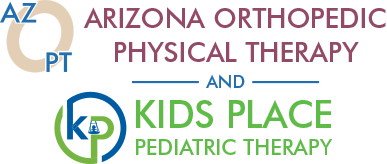Understanding How Children Learn Their First Verbs
Watching your child learn to talk is one of the most exciting parts of parenting. You may hear your child use their first words around 10-16 months. These first words are typically nouns, such as mama, dada, doggy, and ball. Starting as early as 8 months of age, your child may start to also show understanding of simple, frequently occurring verbs, or action words. However, it is not until around 19 months that your child may use his/her first verb.
The Importance of Verbs in Language Development
Using verbs is a big step in language development because verbs are essential for expressing actions and events, making communication more meaningful and interactive. You may notice that your child’s first word combinations can be defined as what is called telegraphic speech. These utterances are characterized as mostly use of two nouns and lacking grammatical structure, such as “Doggy ball” (It’s the dog’s ball) or “Daddy bike” (Daddy is riding the bike).
Common Early Verbs and Daily Routines
Children typically learn verbs related to their daily activities and routines first. Words like go, fall, give, cry, drink, hug, kiss, eat, open, sleep, and wash are common early verbs because they are frequently used by parents and caregivers in everyday interactions/events. For example, you might say “eat” when it’s time for a meal or “play” when engaging in games with your child. These repeated exposures help your child associate the words with the actions they describe.
Verb Usage and Milestones
A study by Hadley, Rispoli, and Hsua (2016) indicated that it is common for a 24-month-old to have around 40 verbs that they use. If a child is using less than 10 verbs at this time, it is not cause for concern as long as the child starts to add several new verbs to their vocabulary in the following months. This study indicates that a child should be adding 8 new verbs each month after the 24-month mark.
If you would like a list of 50+ examples of first verbs, click here.
The Learning Process: Understanding and Feedback
Learning verbs is not just about copying words they hear; it involves understanding the connection between actions and their outcomes. When children try to use a new verb, they often receive feedback from adults. For instance, if a child says, “go park,” a parent might respond with “Yes, we are going to the park!” This type of interaction helps children refine their understanding and use of verbs.
Supporting Your Child’s Verb Learning
Engaging with your child in conversations, reading books, and narrating your actions can all support their verb learning. Simple, clear language and plenty of repetition make it easier for them to grasp new words. It has been recommended that modeling a target word (so in this instance, a verb such as eat, wash, sleep, play, go) 9 times a minute during the play scheme/routine. It’s also important to think about word placement. Many toddlers learn new words best when used as a single word or at the end of the phrase. For example, you could say “Play! I wanna play! Let’s go play!” Celebrate their attempts to use new verbs, as this encouragement boosts their confidence and reinforces their learning.
Overall, acquiring first verbs is a dynamic process that highlights the incredible ability of young children to learn and adapt. By supporting this process, you are helping your child develop essential language skills that will serve as a foundation for their future communication abilities. If you are concerned about your child’s speech and language milestones, please reach out to us here at Kids Place Pediatric Therapy!
References:
Hadley, P. A., Rispoli, M., & Hsua, N. (2016). Toddlers’ verb lexicon diversity and
grammatical outcomes. Language, Speech, and Hearing Services in Schools, 47, 44–58.
Lowry, L. (n.d.). Verbs pave the way for language development. https://www.hanen.org/Helpful-
Info/Articles/Verbs-Pave-the-Way-for-Language-Development.aspx.







